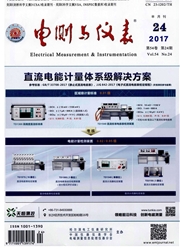

 中文摘要:
中文摘要:
针对主动配电系统中负荷的动态变化性,将需求侧响应融入到该系统的优化调度中。考虑到分布式能源的碳排放特性,以配电网运行成本及二氧化碳排放成本最低为目标函数,引入可中断负荷等相关约束,建立了日前低碳经济调度模型。采用基于差分演化的果蝇优化算法求解模型。算例结果表明优化结果能够兼顾运行成本及排放成本,在调度中引入需求响应可以引导负荷转移,削峰填谷,具有显著的节能减排效益。
 英文摘要:
英文摘要:
According to the dynamic change of the load in the active distribution system( ADS) , the de-mand side response was integrated into the optimization scheduling of this system. Considering carbon e-mission characteristics of distributed energy resources, low carbon economic scheduling model was estab-lished to decrease the operating cost of distribution network, and the CO2 emissions cost decrease. The constraints on transfer load and interruptible load were also taken into account. A fruit fly optimization al-gorithm based on differential evolution was applied to solve the model. The results showed that the optimi-zation model could take into account both the operating cost and the emissions cost. The carbon emission reduction could be achieved while the demand response was applied to guide the load transfer.
 同期刊论文项目
同期刊论文项目
 同项目期刊论文
同项目期刊论文
 期刊信息
期刊信息
